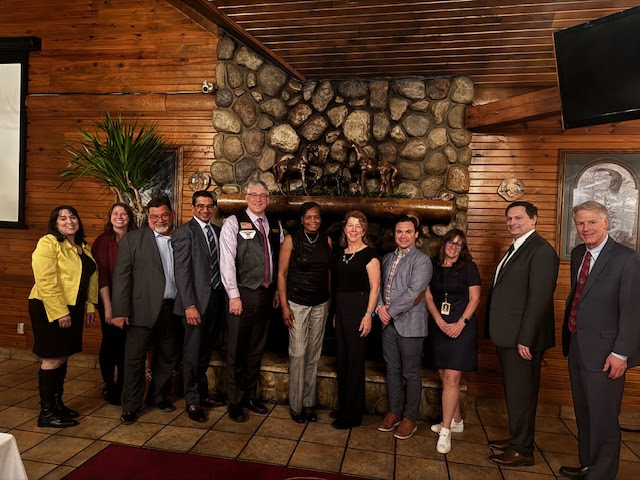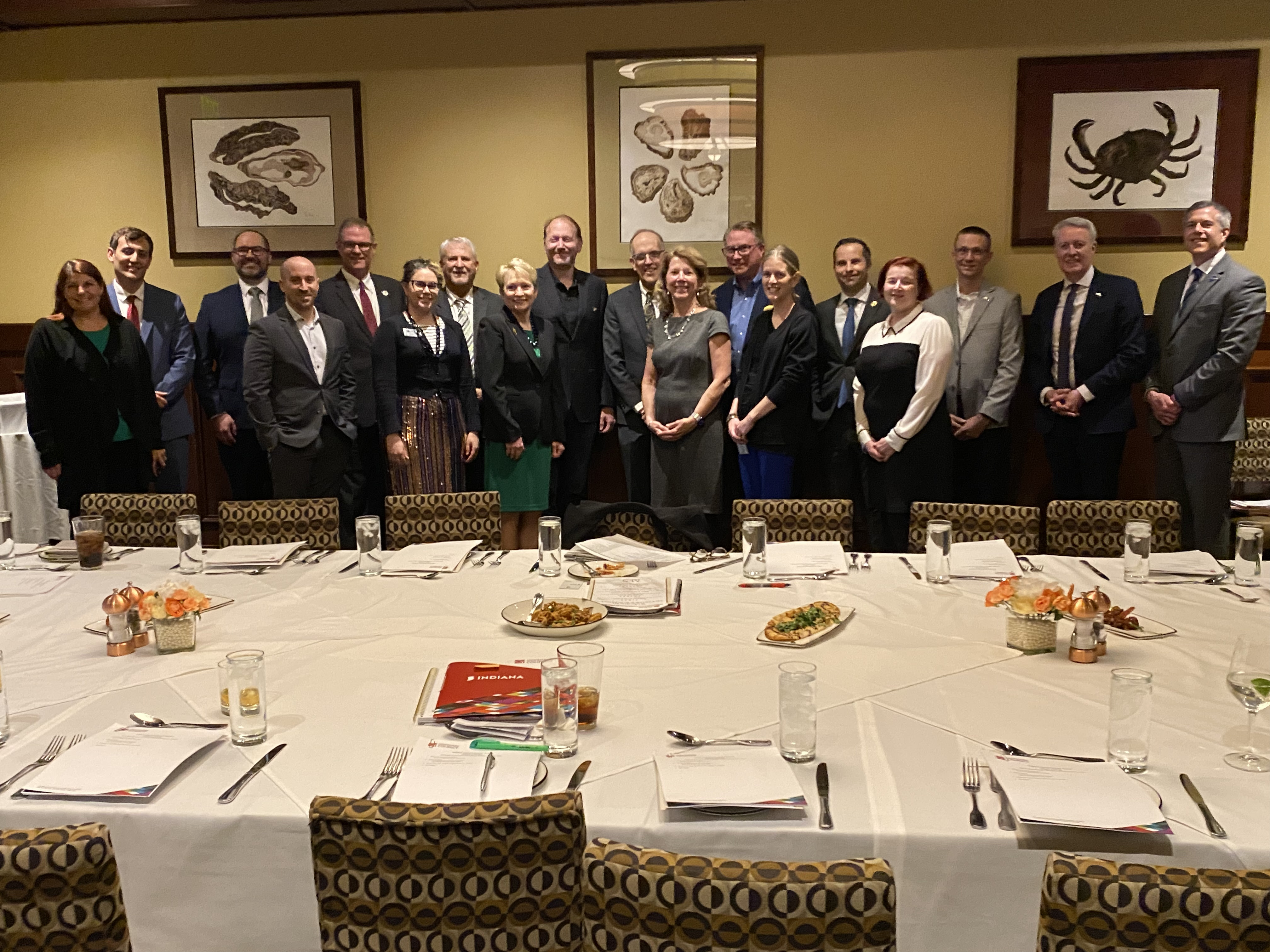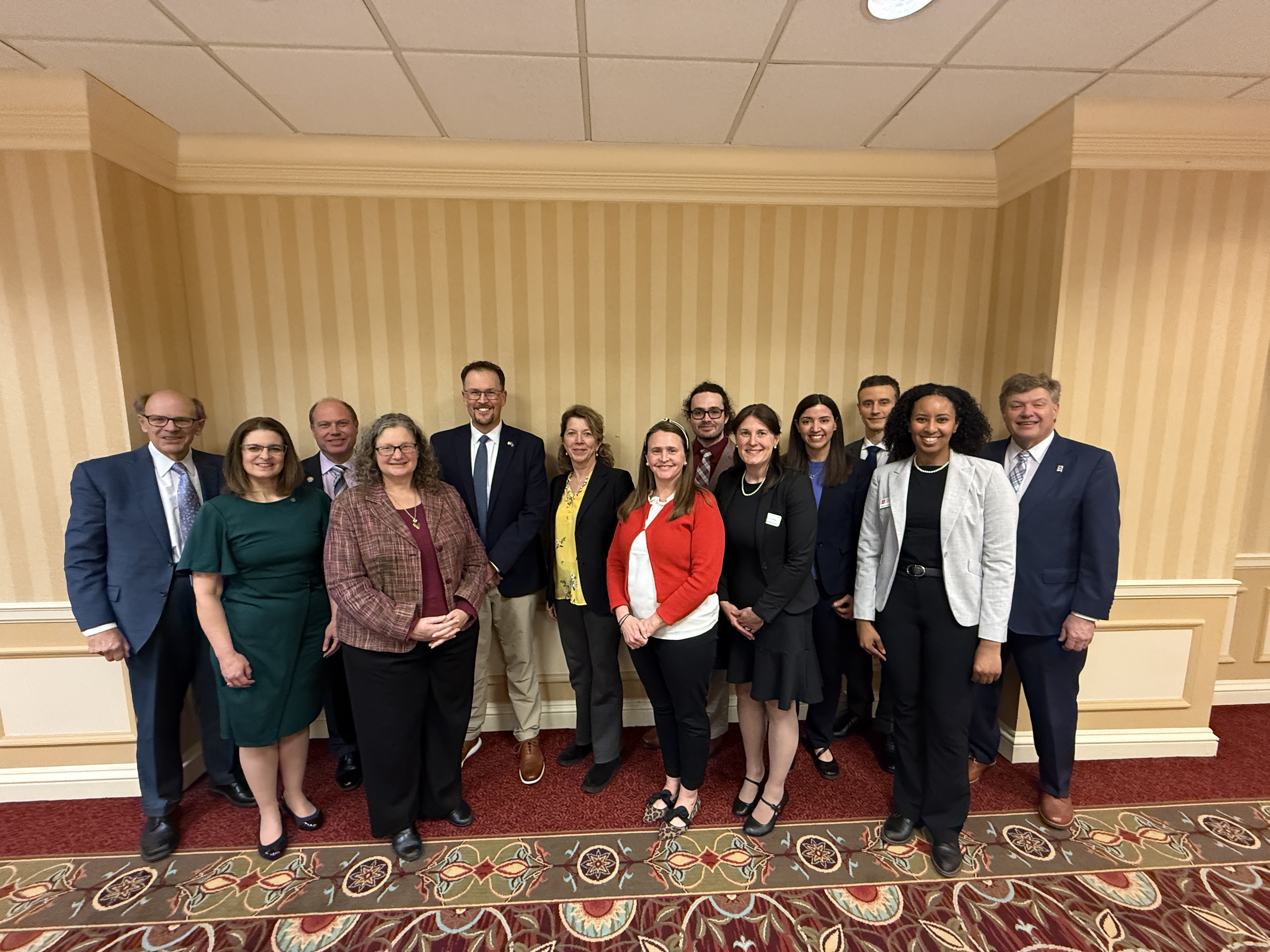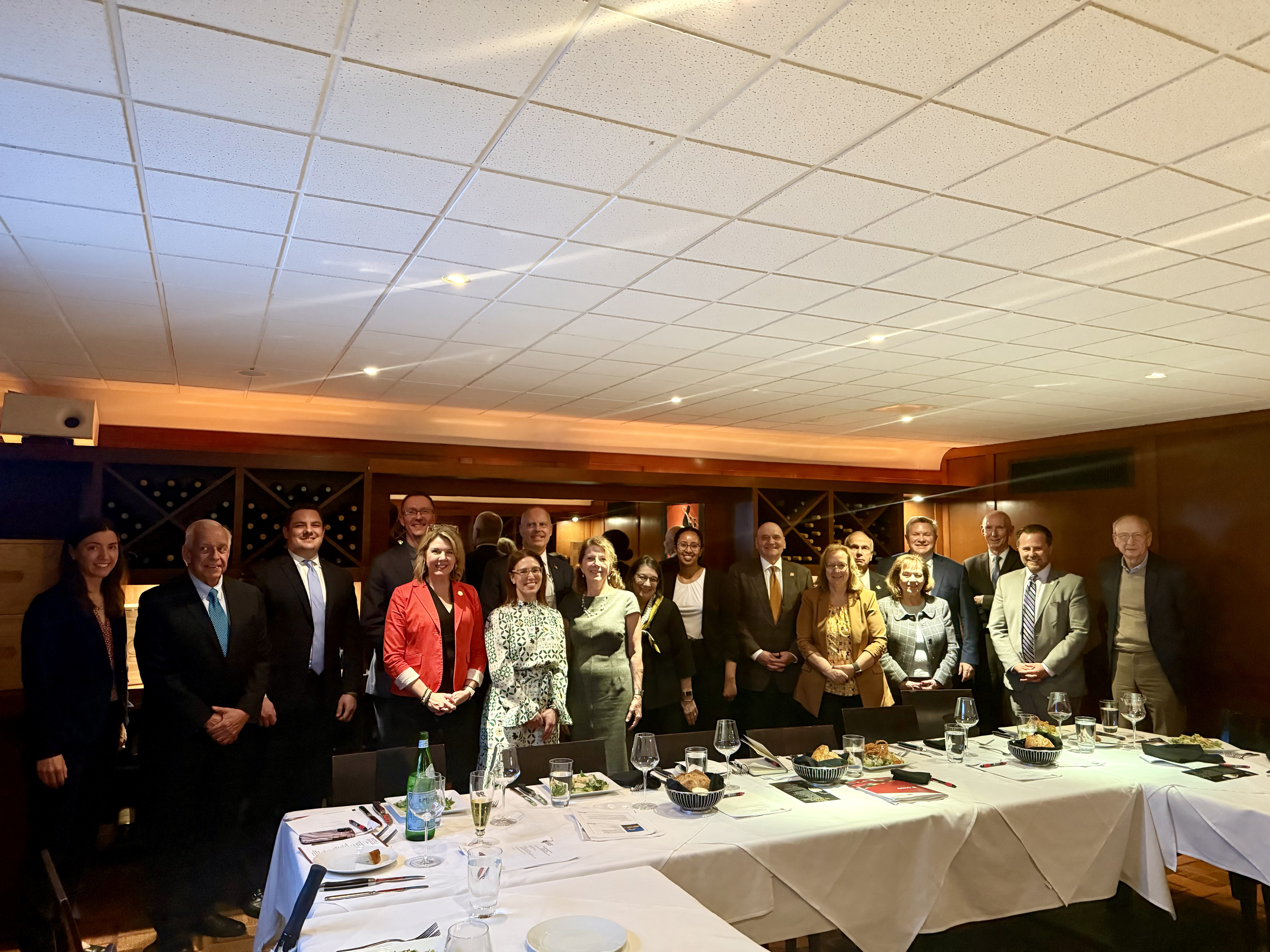MHEC APRIL 2025 NEWS
Greetings from MHEC,
As we near the end of this year's state visits, an important question is coming up over and over: What is the best way to prepare students for rewarding work while helping states and the region thrive economically? In my conversations, state and business leaders emphasize the need for graduates who are work-ready, with the academic experience combined with practical and "soft skills" learned through internships and apprenticeships.
In this edition of MHEC News, you'll read about our engagement in education-to-employment pathways and our research of long-term employment indicators that reflect the extent to which graduates are equipped with workforce-relevant and transferable skills. These are topics that will be at the center of MHEC's work in the months ahead.
As always, we encourage you to read this edition and share feedback to help us continually evolve and focus our work.
Susan G. Heegaard
President
Policy & Research
Majority of Midwest College Graduates Remain Employed Ten Years After Graduation
The latest update to MHEC's Interactive Dashboard shows that a majority of Midwest college graduates were employed in the U.S. one, five, and ten years after completing a credential between 2006 and 2015. In addition, the percentage of graduates employed increased between one and five years after graduation, with those employment gains sustained through ten years after graduation. The percentage of certificate graduates employed rose from 60% at one year after graduation to 71% at ten years; associate degree graduates from 62% to 78%; and bachelor's degree graduates from 68% to 79%.
Long-term employment indicators partly reflect the extent to which graduates are equipped with workforce-relevant and transferable skills, as well as their ability to adapt in an evolving job market. This indicator can also be used alongside related measures — such as earnings, opportunities to apply learned skills, and the relevance of a graduate’s level of education or major to their employment — to provide a more complete perspective on workforce outcomes and the degree of alignment between higher education and state labor markets.
This indicator uses data from the U.S. Census Bureau’s Postsecondary Employment Outcomes (PSEO) initiative. The available data currently represent participating public and private institutions in nine Midwest states: Illinois, Indiana, Iowa, Michigan, Minnesota, Missouri, Ohio, South Dakota, and Wisconsin.
Selected workforce indicators are also available for MHEC states in the report Higher Education in Focus.
Update on MHEC Strategic Priorities
Developing collaborative solutions
 MHEC Joins Regional Dialogue on Education-to-Employment Pathways
MHEC Joins Regional Dialogue on Education-to-Employment Pathways
Carrie Wandler, Director of Policy Initiatives at MHEC, recently represented the Compact at Reflection and Action: The State of the Workforce Ecosystem, a convening hosted by the Council for Adult and Experiential Learning (CAEL) in San Diego, California.
The event brought together leaders from higher education, workforce organizations, chambers of commerce, and employers to explore innovative strategies for strengthening education-to-employment pathways.
A central topic of the convening was Credit for Prior Learning (CPL), which enables individuals to earn academic credit for skills and knowledge gained through work, military service, and life experience. CPL is emerging as a powerful, low-barrier tool to accelerate credential completion, reduce educational costs, and improve workforce alignment. Increasingly, institutions are using CPL to recognize industry-relevant credentials—such as certifications or licenses—as verified evidence of skills-based learning. This approach opens doors to academic programs and allows learners to advance more quickly toward credentials. For many institutions, CPL is proving to be a scalable approach that supports learners while helping states reach postsecondary attainment goals and meet the demands of a rapidly changing labor market.
In the coming months, MHEC will continue to elevate forward-thinking, learner-centered best practices that demonstrate how cross-sector solutions can help states fill in-demand jobs, address workforce shortages, and build stronger talent pipelines aligned with regional economic needs.
Driving cost savings & business solutions
Technology Contract Updates: Renewals & Updates
Renewals: MHEC has finalized renewals with Connection, Dell, HP Inc., and Lenovo (U.S. and Global), extending each agreement through June 30, 2029. These cooperative contracts continue to offer competitive pricing, enhanced service levels, and alignment with the evolving technology needs of institutions across the region.
Institutions are encouraged to adopt these agreements over the next four years to fully realize long-term value and operational efficiency. Each agreement is structured with flexibility to accommodate institutional procure-to-pay processes, internal policy requirements, and regulatory compliance needs.
To learn how your institution can best leverage these contracts, contact Nathan Sorensen, director of government contracts. View the MHEC technology contracts: MHEC Technology Computers.
Expiration: The current MHEC contract with Xerox for printers and peripherals will expire on June 30, 2025, and will not be extended. A category reassessment is underway to evaluate institutional priorities and inform the future direction of MHEC’s printing solutions. If you're a current Xerox contract user and have questions on continuity of use, please contact Nathan Sorensen.
Convenings
Dual Enrollment
GCQ Upgraded: New Features and Insights
April 24 at 1 p.m. | REGISTER
Dual Enrollment Funding Models: Where Does Your State Stand?
May 6 at 2 p.m. | REGISTER
Professional Licensure
Navigating Professional and Occupational Licensure Requirements: What Community and Technical Colleges Need to Know
April 23 at 1 p.m. | REGISTER
Preparing for NC-SARA Policy Changes: Essential Insights for Professional Licensure Programs
May 21 at 11 a.m. | REGISTER
Resources: Post-event
Access to and Success in Dual Enrollment Courses in Indiana and North Carolina
See resources
Concurrent Enrollment (CE) Instructors and the Fallout of the HLC CE Credentialing Clarification
See resources
Two States, One Mission: FAFSA Completion Insights from IA & NE
See resources
Commissioner Appointments
New Commissioner
Monica Kurth (IA)
New Commissioner Alternate
Beverly Walker-Griffea (MI)
Reappointed Commissioners
Jerry Cirino (OH)
Dan Hurley (MI)
Reappointed Commissioner Alternate
Jacob Bossman (IA)
State Visits
Over the past month, MHEC staff were grateful to make state visits to Illinois, Indiana, Minnesota, and Ohio. The conversations with MHEC Commissioners and state higher education leaders and policymakers help MHCC develop future solutions and plans.




Articles and Resources of Interest
AI Is Reigniting Decades-Old Questions Over Digital Rights, but Fair Use Prevails
TechPolicy.Press | March 25, 2025
Bridging the Digital Divide: How Online Learning is Transforming Access to Education Worldwide
USA Wire | March 25, 2025
Bringing AI and OER together
21st Century Blog | March 13, 2025